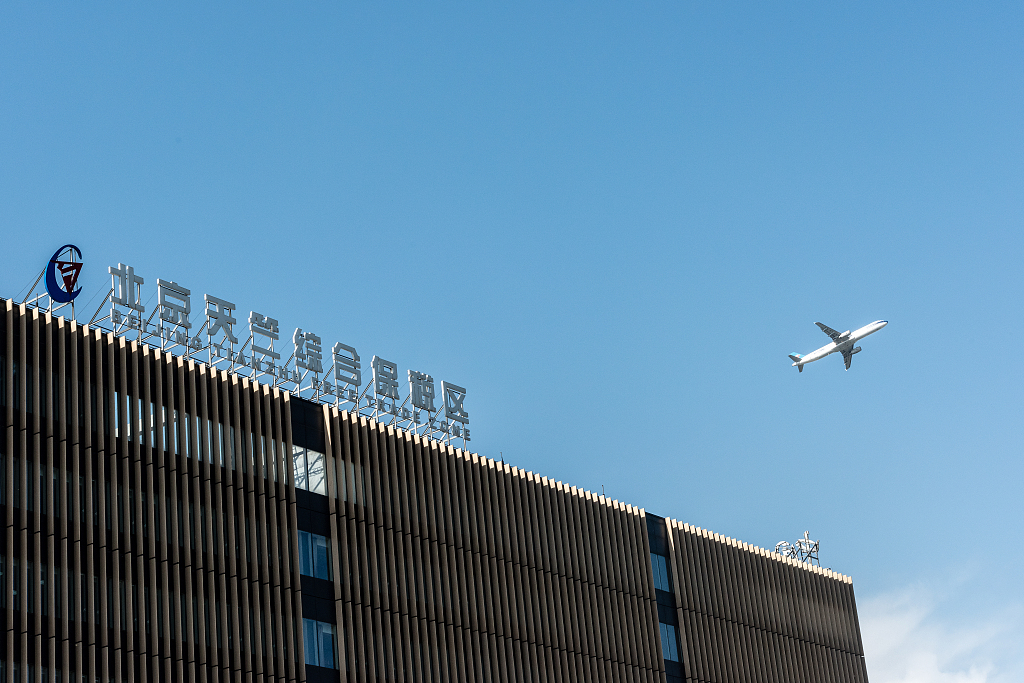Beijing (People's Daily) - The Beijing Municipal government moved to further expand the scope of tax cut for cross-border e-commerce retail goods, covering 63 more items that are in high demand, according to a media briefing Wednesday.

Tianzhu Comprehensive Bonded Zone (Photos: VCG)
The city’s cross-border e-commerce regulatory policies such as the first-time import license approval, registration or filing requirements will not be applied to cross-border e-commerce retail imports, but would be regulated as imported goods for personal use.
Beijing has optimized its cross-border e-commerce with the sector’s rapid development, Ni Yuegang, deputy head of Beijing's municipal commerce office, told the briefing.
Different parties such as the Tianzhu Comprehensive Bonded Zone, Yizhuang Bonded Logistics Center, companies like JD.com and the Alibaba Group are all stepping up efforts to optimize the environment for cross-border e-commerce in Beijing.
The move lifts the market threshold for cross-border e-commerce, while business players will look into more port choices.
On taxes, Beijing will further expand the scope of goods entitled to preferential policies on the basis of zero tariffs within the quota, value-added tax on import links and consumption taxes at 70 percent of the statutory taxes payable on imported goods in the list of cross-border e-commerce retailers.

Daxing International Airport
The policy adjustment will help accelerate the development of cross-border e-commerce business in the city and foster more new business models. It will also help domestic cross-border enterprises expand their coverage and increase the import of high-quality consumer goods.
Beijing's service system for cross-border e-commerce is being perfected. The city is the only pilot zone for the expansion and opening-up of the service industry in China.
The municipal government has forged 68 original initiatives. Daxing International Airport will become the world's largest international aviation hub for Beijing.
Industrial resource advantages are emerging for Beijing. In the first ten months, the city’s cross-border e-commerce retail was valued at 1.57 billion yuan ($228.3 million), up 62.86 percent year-on-year.
China’s cross-border e-commerce industry has developed to a mature stage, which is dominated by B2C cross-border integrated e-commerce and various business models. To meet their demand for high-quality goods, consumers are placing orders on fragmented channels.
Cover image: Warehouse in Yizhuang Bonded Logistics Center


